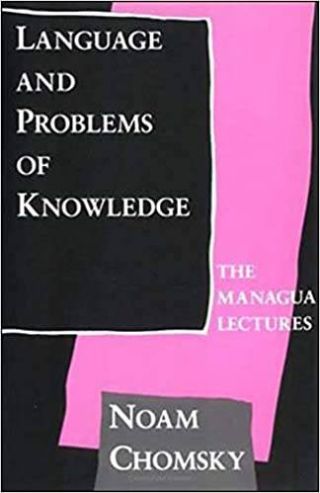Language and Problems of Knowledge: The Managua Lectures (1988) Noam Chomsky

Language and Problems of Knowledge is Noam Chomsky's most accessible statement on the nature, origins, and current concerns of the field of linguistics. He frames the lectures with four fundamental questions: What do we know when we are able to speak and understand a language? How is this knowledge acquired? How do we use this knowledge? What are the physical mechanisms involved in the representation, acquisition, and use of this knowledge? Starting from basic concepts, Chomsky sketches the present state of our answers to these questions and offers prospects for future research. Much of the discussion revolves around our understanding of basic human nature (that we are unique in being able to produce a rich, highly articulated, and complex language on the basis of quite rudimentary data), and it is here that Chomsky's ideas on language relate to his ideas on politics. Language and Problems of Knowledge is sixteenth in the series Current Studies in Linguistics, edited by Jay Keyser. The MIT Press.
- Personen / Themen:
Neukantianismus und Gegenwartsphilosophie
Rationalismus vs. Empirismus